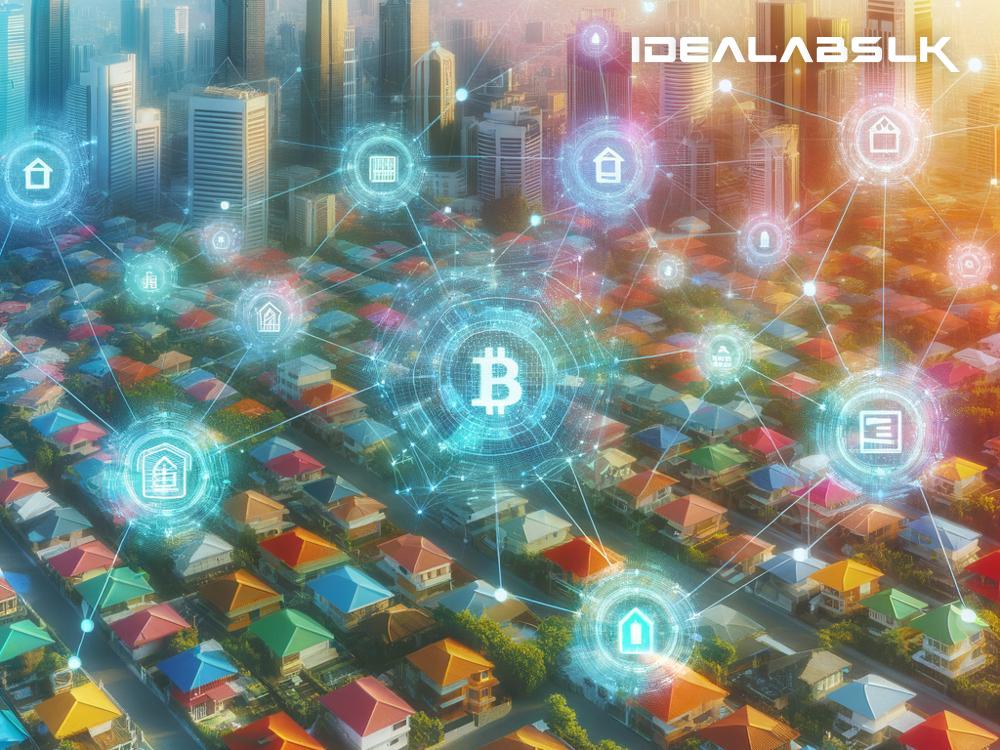Title: Unlocking the Future: How Blockchain is Transforming Real Estate Investment
The world of real estate investment is on the brink of a major overhaul, thanks to the groundbreaking technology known as blockchain. This innovative technology, best known for powering cryptocurrencies like Bitcoin, is now paving the way for a revolution in real estate, making investments more accessible, transparent, and efficient. But how exactly is blockchain achieving this transformation? Let’s break it down in simple terms.
The Basics of Blockchain
Before diving into its implications for real estate, let's quickly understand what blockchain is. Imagine it as a digital ledger or a record book that's shared among a network of computers. Whenever a transaction occurs, it's recorded in this ledger. What's unique is that this ledger isn't stored in one place or controlled by a single entity; it's decentralized. This means it's very secure, as changing any information would require altering every copy of the ledger across all computers simultaneously, which is practically impossible.
Smoothing Out Transactions
Real estate transactions are known for their complexity, taking a considerable amount of time and involving multiple parties like agents, banks, and lawyers. Blockchain simplifies this process by providing a single, immutable ledger. This means property transactions can be executed more efficiently without the need for as many intermediaries. In English? Buying or selling property becomes quicker, cheaper, and less of a headache.
Making Investments More Accessible
Often, investing in real estate has been the playground for the wealthy, requiring significant capital. However, blockchain introduces something called "tokenization." This is where real estate is divided into tokens that represent a share of the property. These tokens can be bought and sold on blockchain platforms, allowing people to invest in real estate with much smaller amounts of money. Now, investing in a piece of property can be as easy and accessible as buying a stock online.
Boosting Transparency and Trust
One of the critical challenges in real estate transactions has been the lack of transparency, leading to fraud and disputes. Blockchain comes to the rescue by making all information about property transactions open and verifiable. Every detail, from the true owner of the property to its history, can be securely recorded on the blockchain. This drastically reduces the potential for fraud and builds trust among all parties involved.
Streamlining Property Management
Blockchain doesn't stop at buying and selling properties. It's also revolutionizing how they are managed. For instance, through smart contracts (self-executing contracts with the terms directly written into code), property owners can automate tasks like collecting rent or managing service agreements. These contracts automatically execute transactions when certain conditions are met, making the management process more efficient and reducing the potential for disputes.
The Future Landscape of Real Estate Investment
What does all this mean for the future of real estate investment? For starters, the barriers to entry are being dismantled. More people can participate in real estate investment, regardless of their geographical location or economic status. The process is becoming more democratized.
Furthermore, the increased efficiency, transparency, and security provided by blockchain are not just making transactions smoother but also more attractive to investors. Properties that were once considered too cumbersome to invest in due to management complexities may now become viable options.
Moreover, the transparency and efficiency of blockchain could lead to a more liquid real estate market. With easier access and simpler transactions, buying and selling property could become more frequent, making real estate a more flexible investment option comparable to stocks or bonds.
Conclusion
Blockchain is not just a buzzword or a trend limited to the tech world. It's a transformative technology that's set to redefine the real estate landscape. By making transactions more efficient, accessible, and transparent, blockchain is opening new avenues for investors and simplifying property management for owners.
While we're still in the early stages of this transformation, the potential is immense. As more people understand and embrace blockchain technology, its impact on real estate investment is expected to grow, paving the way for a more inclusive, efficient, and transparent market. The future of real estate investment, powered by blockchain, promises to be an exciting one.

